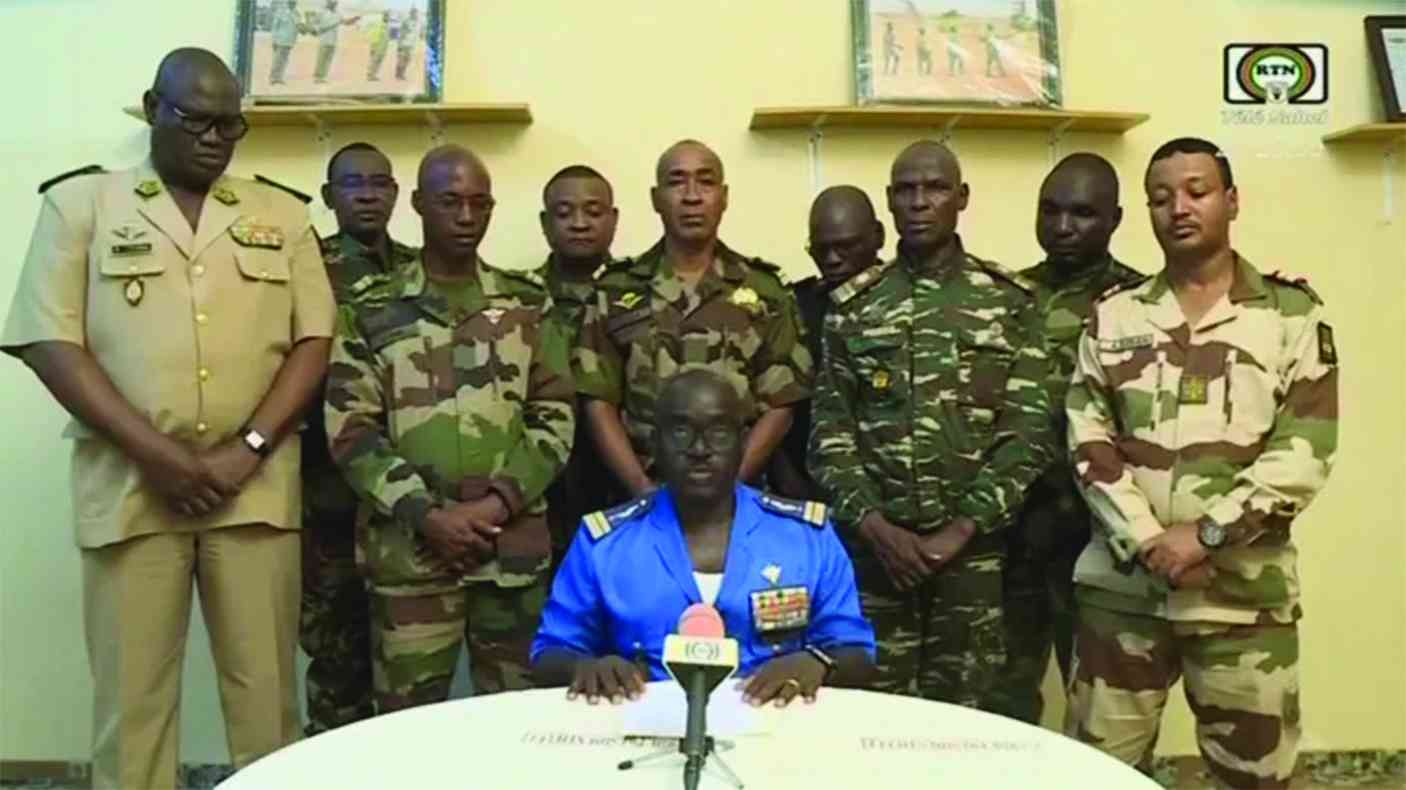
THE world is changing. In some cases, the causes of these changes are unorthodox. But changes are happening anyway.
When wars of independence began being waged across Africa seven decades ago, they were all illegal because laws had been established by the colonialists.
Anything that unsettled their interests was illegalised. That is the role of laws as tools of power, order, and control.
Today, the war in Ukraine is shaping global politics and geopolitical relations. No one anticipated that the world needed a war to untangle itself from Western hegemony.
Just like no one expected that it would require African colonies to arm themselves to unshackle from colonialism. Wars are bad because they cause deaths and suffering but, in some cases, they solve problems.
They should be used as a last resort when dialogue and diplomacy have failed. Perhaps the world must ask itself if it needs a war to address some challenges.
What inspires this discussion?
On July 26, 2023, a coup d’état took place in Niger when the country’s presidential guard detained President Mohamed Bazoum, and presidential guard commander General Abdourahamane Tchiani proclaimed himself the leader of a new military regime.
- Africa is paying dearly for the Russian/Ukraine conflict
- Drug rehab specialist appeals for funding
- Power cuts: Zesa sleeping on duty
- ‘School of funeral assurers a priority’
Keep Reading
Presidential guard forces closed the country’s borders, suspended State institutions and declared a curfew. This was the fifth military coup d’état since Niger gained independence from France in 1960, and the first since 2010. The coup was widely condemned by the international community and by the West African regional bloc Economic Community of West African States (Ecowas), which is currently considering military intervention in that country, sparking the 2023 Nigerien crisis.
Since Tchiani took over power, he has been saying the right things and raising pertinent questions. He has been asking what should be done when elected leaders are not serving, but starving the people.
He asked what should be done if elected leaders are overstaying and abusing power and the people are going hungry.
He has asked what should be done when elected leaders continue to allow former colonial administrations to control the economic affairs of the country and yet the people are destitute.
These are real questions. His words have not only chimed with the people of Niger, culminating in street demonstrations in support of his leadership, but are also threatening regional and Western countries’ interests.
He is aware that he carries a legitimate question as a coup leader even though he is speaking the right language.
Soon after taking overpower, Tchiani announced the suspension of the export of uranium and gold to France with immediate effect and this was backed by the people of Niger who thronged the streets in his support.
When one takes a step back from politics and realises that Niger is Europe’s largest supplier of uranium and the seventh global supplier and yet its people languish in poverty, there are, indeed, deeper questions to be asked about the dethroned Bazoum.
France has been at the forefront of condemning the coup and pushing efforts for Niger to revert to civilian rule. Of course, they are flagging legitimacy questions and they have done so with the aid of Ecowas.
What is really at stake here? Democracy or the loss of uranium supplies? France had so many decades to help its former colonies to be democratic, but it decided to stick around and control their affairs, part of the reason its former colonies are prone to coups. So, let’s leave the democracy question aside.
The uranium question is the reason France has a lot of interest in the political developments in Niger and Ecowas is blindly following.
The fact is that France has one of the largest nuclear power programmes in the world. Nuclear power plants in France generated 361 billion kilowatt-hours of electricity in 2021, accounting for 68% of the country’s annual electricity generation, the highest nuclear generation share in the world.
France has few fossil fuel resources, and that is why it turned to nuclear power on the assumption that countries such as Niger will continue to provide uranium.
But Niger has among the world’s lowest consumptions of electricity with only 15% of its people having access to electricity and even these face frequent blackouts. That is how unfair France’s relationship is with its former colonies.
The Niger situation is confusing when looked at from the lenses of Western narratives but easy to comprehend when read from the views of the people of Niger. This is why its people surrounded the French Embassy calling for the end of its colonial practices and reaffirming their support for the coup leader, Tchiani.
It would be unfair and unreasonable on the part of Ecowas to intervene in Niger without taking into account the voices of the people.
A return to democracy in Niger cannot neglect the voices of the people and the fact that part of the reason the country is poor is because of France and the dethroned Bazoum and his predecessors’ actions.







